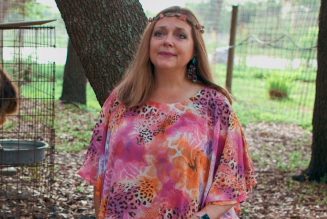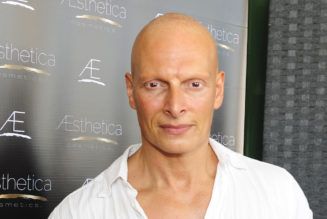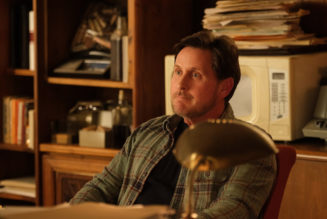By Gina Marinelli
Gossip Girl is no stranger to transformations. In the first three seasons of the early aughts series, Jenny Humphrey went from a preppy freshman desperate for approval to a rebel with a penchant for heavy eyeliner, eventually leaving the world she once tried to fit into. But its biggest makeover to date is out today (July 8) on HBO Max with a vampy reboot that seeks to interrogate the influencer generation with fierce style and sometimes biting accuracy.
Some of the show’s hallmarks remain the same, including the hallowed (albeit renovated) halls of Constance Billard, the backdrop of New York City, and the show’s perennial pot-stirrer, Gossip Girl. It follows the charmed, if only on the surface, lives of New York City’s wealthiest teens as their most private and dark secrets become public knowledge, thanks to an anonymous digital tattletale. But fans of the original will find that picking cast favorites is no longer as simple as declaring themselves Team Blair or Team Serena. Instead, there’s a new batch of deliciously flawed and complicated characters to latch onto.
“When people watch the show, you learn that there are kind of inklings of [the original Gossip Girl characters] cast into each main character in the new cast,” actress Whitney Peak tells MTV News, “so that will be fun for the original fans to notice and clock.” Peak plays Zoya Lott, the newest recipient of an arts scholarship to the elite Upper East Side school. There, she finds herself surrounded by classmates who come from wealth far beyond her reality at home. If you had to draw parallels, “she’s definitely the Dan or Jenny Humphrey in the plan of it all,” Peak says.
 Karolina Wojtasik/HBO Max
Karolina Wojtasik/HBO MaxZoya finds a quick ally in Julienne Calloway, her estranged half-sister, the student body’s most popular member, and because it’s 2021, an Instagram influencer. Played by Jordan Alexander, Julienne possesses the charm and likability of a Serena van der Woodsen, Blake Lively’s beautiful it-girl with a free spirit, bubbly personality, and a wild side. Serena probably would have racked up a huge following, too, if the social media app existed during her high school years. But it’s Julienne’s bubbling-under-the-surface desire to hold on to her aspirational, Instagram-filtered life that reminds us of someone else, too.
“I like the Blair [Waldorf] comparisons,” Alexander says of the character, expressing excitement in playing an antagonist. Where Blair is a Yale-or-nowhere leader with friends whose affection lies somewhere between love and fear, Julienne’s not explicitly reaching for royalty. But she isn’t willing to lose her status among her classmates or followers, either, no matter who may be standing in her way. Say, a new, younger sister coming into the school, unwilling to keep up with her Instagram-filtered existence. “She does have that superficial motivation in terms of her view of success, or potentially a fear-based view of success. It’s like, ‘If I can’t accept myself and love myself, at least I’ll look really amazing and everybody will praise me and that will be good enough.’”
Helping to uphold her image is Julienne’s boyfriend Obie Bergmann IV, played by Eli Brown. “Ever heard of the guilty rich? This one’s the guiltiest… and the richest,” his friends describe him in the pilot. Where Jullienne spends her mornings capturing content of her Louis Vuitton Capucines freshly removed from the dust bag before heading off to class, Obi delivers coffee to picketers fighting against gentrification. “He’s not only aware of his privilege, he’s actually doing something about it,” Brown says. “Or trying to do something about it… He’s not always going about it the right way.”
 Karolina Wojtasik/HBO Max
Karolina Wojtasik/HBO MaxThere’s also Julienne’s best friend Audrey Hope (Emily Alyn Lind), her longtime boyfriend Akeno “Aki” Menzies (Evan Mock), and confidant Max Wolfe (Thomas Doherty), as well her stylist and publicity team: the brilliantly wicked and savvy Luna La (Zión Moreno) and Monet de Haan (Savannah Smith). It’s Max who possesses a seductive gaze that will resonate with fans of the original cast’s Charles Bass — a bad boy with some deeply problematic behaviors, self-serving motivations, and some deeper emotional trauma that’s not always addressed — with a sexually liberated persona to match. “I don’t have to close my eyes and fantasize about anything,” he shares. “I allow myself to sample everything.”
It might be easy to assume that Zoya, an outsider and aspiring playwright, is the obvious heir to Gossip Girl’s anonymous account — which now exists through Instagram, naturally — dredging up secrets and disrupting the comfortable, privileged world these characters inhabit. But it’s clear that show creators Josh Safran, Josh Schwartz, and Stephanie Savage didn’t return to this revival to simply rehash old plotlines. Peak, too, confirms that Zoya couldn’t be further removed from Gossip Girl’s world (“She is so separated from the glitz and the glamour of it all”) until she gets unwillingly pulled in. Thankfully, viewers don’t have to wait six seasons to find out who resurrected the famously verbose troll: Gossip Girl’s identity is revealed within the first 60 minutes.
Still, what is the series without the lingering mystery around its titular character’s identity? Well, firstly, it’s fun to watch Gossip Girl run around, cover her tracks, and keep up with maintaining multiple faces. But this time around, we witness the status quo of Constance Billard shift as she upends the lives of high schoolers who seem to respect the institution, including a particularly fed-up teacher played by Tavi Gevinson, about as much as the dress code. Original costume designer Eric Daman returns, as well, to bring the characters to life through their highly personalized “uniform” wardrobes. We also get a whole new perspective seeing main characters slide into Gossip Girl’s DMs, bargaining with her in an attempt to hold onto control and public attention. As Alexander explains, Julienne’s keen to look at Gossip Girl as a threat, that is “until it [becomes] big enough to kind of benefit her brand or something. Then it would be beneficial to be talked about on Gossip Girl.”
 Emily V. Aragones/HBO Max
Emily V. Aragones/HBO MaxMess, secrecy, love triangles, excessive displays of wealth, and incredible looks are fixtures, but the revival’s biggest evolution is how it reflects the time. Representation among the cast is more diverse, and reflective of the city, than the predominantly white, cis, and straight predecessor. People don’t grimace when they say “Brooklyn,” although a little at the mention of a headband. And it’s hard to imagine any of these teens sipping a martini at the Palace Hotel. They’d rather attend the opening night of a new Jeremy O. Harris play or a Christopher John Rogers runway show.
These details may not necessarily spark nostalgia for anyone who asked for reservations to Butter for their sixteenth birthday, but it certainly will for New Yorkers who spent the better part of the last year and a half at home. Either way, both will find in Gossip Girl, an hour-long drama that holds its own compared to the old favorite.









